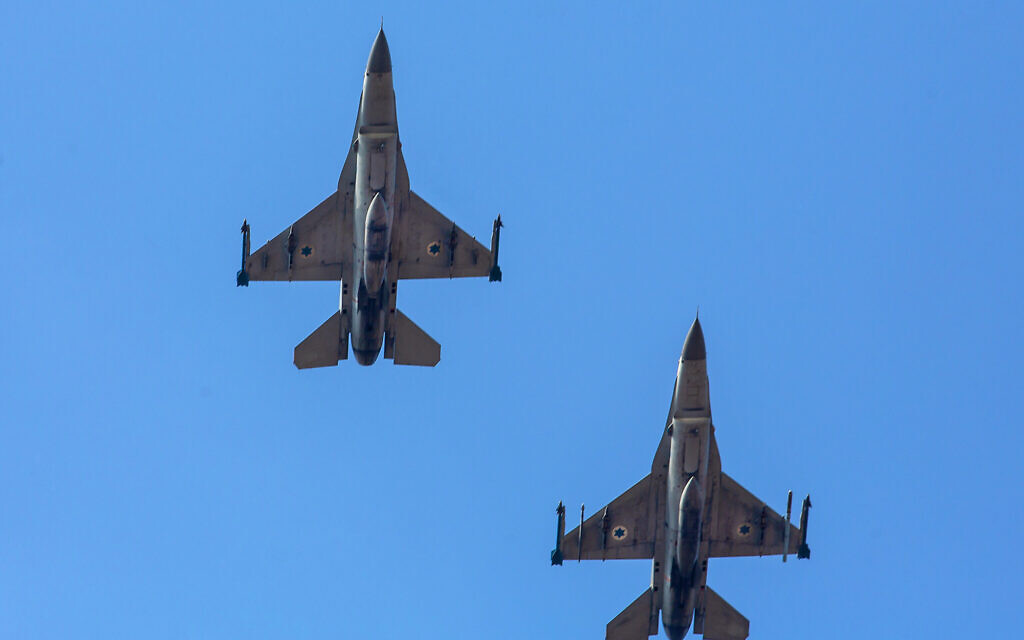
Over the past two and a half weeks, Israel has reportedly conducted at least four rounds of airstrikes on Iran-linked sites in Syria, including a major bombardment in the predawn hours of Wednesday morning according to media outlets there, in a major step up from the normal scope and frequency of attacks.
Wednesday’s attack was a major operation against Iran’s efforts to establish a permanent military presence in the country, one of the largest reported Israeli airstrikes in years, with over 15 sites bombed in eastern Syria some 500 kilometers (300 miles) from Israel, according to Syrian reports.
The bombing was both more intense than normal — in comparison, the Israel Defense Forces said it struck some 50 targets in Syria in all of 2020 — and took place much farther from Israel than most attacks attributed to the Jewish state. The three other rounds of airstrikes in last few weeks took place in areas closer to Damascus and the Syrian Golan.
The IDF had no comment on the late-night strikes, in accordance with its policy to neither confirm nor deny its operations in Syria save for those in retaliation to an attack on Israel from the country.
The significant increase in the frequency and scope of the attacks stems from an assessment by the Israel Defense Forces, shared with The Times of Israel, that Iran is unlikely to retaliate in a major way to these strikes in the short term.
In general over the past year, Iran has not responded to Israeli airstrikes — either not finding a way to do so or being stopped by Israel from doing so — and currently Tehran appears to be preparing to enter into negotiations with US President-elect Joe Biden’s incoming administration, which would be more difficult were it to be actively engaged in fighting with Washington’s key ally in the region. While Iran takes a wait-and-see approach, Israel is taking advantage. READ MORE